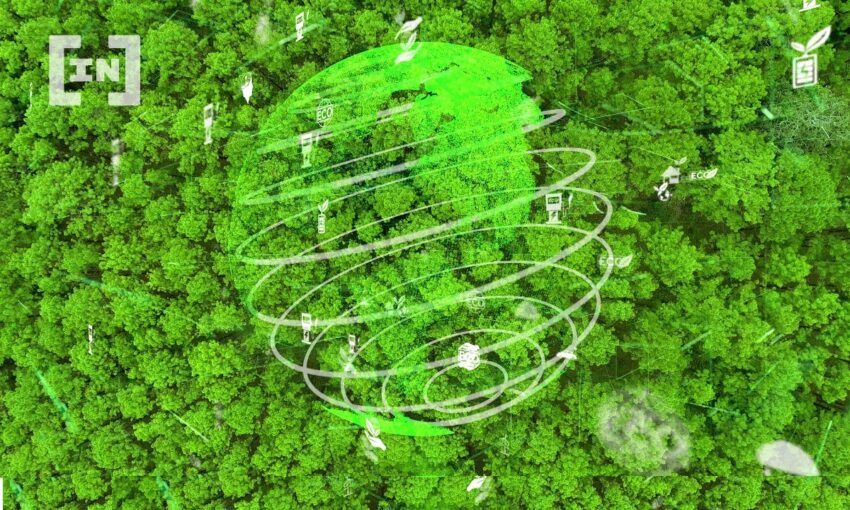Saving the planet won’t be easy, but we can speed things up significantly by using blockchain tech, says Luis Felipe Adaime.
Humanity is facing its greatest existential challenge: climate change. Since we appeared on the planet, the risk of being extinct (and in a very short time) has never been so high. We are emitting more than twice as many greenhouse gasses as in 2008. If we continue at this rate, scientists say that the average global temperature is expected to increase by 2.5 to 3 degrees Celsius by 2070 (fifty years from now).
It seems little, but it would be catastrophic: an increase of this magnitude implies that: (a) all coastal areas, such as Rio de Janeiro and New York, would be underwater; (b) the tropical zone of the world, which includes Brazil, Africa and Southeast Asia, would be uninhabitable because it will be 65 degrees in the shade; and (c) the world’s food production would fall by 50% or more, starving the poorest half of the global population, or 5 billion people, to death.
Tech to the rescue
There is a school of thought, which Moss is a part of, that believes emissions will fall due to technological changes (like driving electric vehicles instead of combustion engine cars), but unfortunately not at the speed we need.
We have to add agility through the trading of carbon credits. These are digital certificates that prove that a company or environmental project has sequestered or avoided the emission of a metric ton of carbon.
Carbon emissions are a negative externality of the economy based on fossil fuels (an unforeseen “side effect”). So they are not priced into the system except through the trading of carbon credits. An oil company emits millions of tons of carbon a year, but unless this company is in the carbon market, buying carbon credits, it doesn’t pay for that pollution. Instead, the rest of us humans pay in their place: the unavoidable cost of poorer air quality and climate change is spread across the nearly 8 billion people on Earth.
The carbon market has expanded greatly in the last 3 years. This is because climate change has become more obvious to the world. Millennials – people born after 1980 – have replaced baby boomers as the world’s most important demographic. Millennials began to demand that companies offset their carbon emissions.
We believe that there is an ongoing process of very high disruption via the use of technology to accelerate the development of the carbon market.

Saving the planet: Carbon credits
There is a lot of talk about the “transparency” and “security” brought to various sectors by the use of blockchain. But what exactly does this mean in practice?
Historically, the carbon credits sector has suffered legitimacy problems due to some (very rare) instances of fraud. As the carbon credit is a digital, intangible certificate, some projects sold the same asset several times. Or they sold credits from Brazil saying they were from Indonesia. They might have sold 2012 credits claiming they were 2015 credits. Or they “canceled” the credits after clearing, and didn’t record it in the global credit registries. Or they sold ten credits that should be “canceled” or retired, and canceled only one. Unfortunately, this has led the industry getting a bad name.
Even today, on the websites of clearing companies that do not use blockchain, the credibility of the clearing is not high. And, the process is easily defrauded (not saying it is defrauded, but that it could be). The user calculates the carbon footprint, buys credits, is charged the amount on a credit card and receives a pdf file or confirmation of the transaction by email.
But what guarantees are there that the credit was actually sold, and not just charged and did nothing? Or that they retired that credit? Or even that the transaction was effectively entered in the global credit registry so that there is no “double counting?”

Saving the planet: Blockchain solution
The use of blockchain solves all these doubts above. Once the transaction is completed, it is available forever, in a 100% secure manner, on crypto networks, in a public and easily accessible way.
Blockchain transactions also avoid “double counting” or “double spending.” A transaction recorded on blockchain does not allow for another record of the same transaction. Data is audited in real-time with global credit records so there is no fraud.
We may manage to bring technological disruption and more efficiency to the global environmental sector. Carbon offsetting needs to move away from being done by hand. It needs to go through APIs and software (SAAS) and with digitized and recorded data on blockchain. If it does, the chances of us being able to avoid a disastrous climate scenario will increase dramatically. It is (still) in our hands to work together so that the planet remains habitable for future generations.
About the author

Luis Adaime is the co-Founder & CEO of Moss. Luis worked from 2012 to 2019 as the portfolio manager and partner for Latam Equities long-only funds at Newfoundland Capital Management. Previously, he was a Managing Director of York Capital Management, working as a Portfolio Manager for the firm’s investments in Latin America. Prior to York, Luis was a Partner at BRZ, a Brazilian hedge fund, working as a commodities Analyst and Portfolio Manager for both their value and long/short funds. Luis began his career working as a Latin American financial institutions Research Associate at Credit Suisse and later moved to the bank’s proprietary desk in São Paulo. Luis holds a B.Sc. in Management Science and Engineering with a minor in Economics from Stanford University and graduated with a laude from Phillips Academy, Andover. He is a native of Brazil and is fluent in English, Portuguese, and Spanish.
Got something to say about saving the planet? Write to us or join the discussion in our Telegram channel. You can also catch us on Tik Tok, Facebook, or Twitter.
Disclaimer
In compliance with the Trust Project guidelines, this opinion article presents the author’s perspective and may not necessarily reflect the views of BeInCrypto. BeInCrypto remains committed to transparent reporting and upholding the highest standards of journalism. Readers are advised to verify information independently and consult with a professional before making decisions based on this content. Please note that our Terms and Conditions, Privacy Policy, and Disclaimers have been updated.


